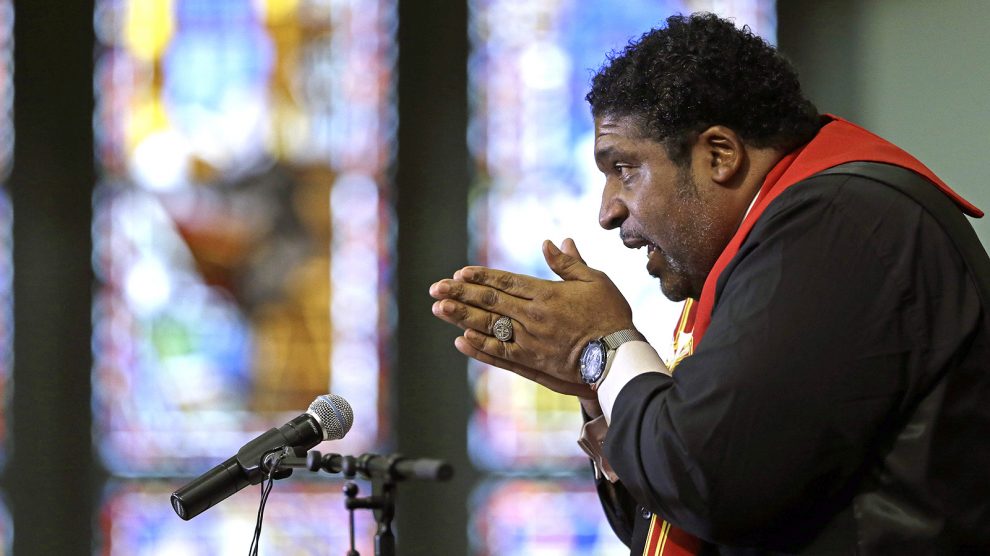The Rev. William J. Barber II, architect of the Moral Mondays movement in North Carolina and leader of the resurgent Poor People’s Campaign, has won a MacArthur “genius” award.
Barber, 55, pastor of Goldsboro, N.C.’s Greenleaf Christian Church and former president of the state’s NAACP chapter, has long been viewed as a rising star in progressive activist circles.
At the 2016 Democratic National Convention in Philadelphia, he brought the audience to its feet with a speech that charged Republicans with misusing faith for political purposes and espoused social justice concerns as essential to American democracy.
Earlier this year Barber resurrected the Poor People’s Campaign, first organized by the Rev. Martin Luther King Jr. before his death to lift up issues of poverty, racism and voter suppression through a series of rallies and demonstrations. The 40-day campaign culminated with a demonstration on the National Mall in Washington in June.
RELATED: Poor People’s Campaign rally ends with vows to keep organizing and protesting
Barber was unavailable for comment on Thursday (Oct. 4) according to a spokesperson, because he was arrested in Chicago while participating in a “Fight for $15” rally convened by fast food and other workers demanding higher wages and the right to unionize.
“Merging moral and activist traditions, Barber is providing a faith-based framework for action that strengthens civic engagement and inspires the country to imagine a more humane society,” the MacArthur Foundation said of Barber. As one of 25 recipients of the so-called genius award, Barber will receive a grant of $625,000 paid over five years.

The Rev. William J. Barber II, co-chair of the Poor People’s Campaign: A National Call for Moral Revival, speaks at the event on the National Mall on June 23, 2018. RNS photo by Adelle M. Banks
Barber is one of 25 MacArthur Fellows announced Thursday (Oct. 4) by the Chicago-based foundation. They include a composer, several artists, a poet, a mathematician, a psychologist, a computer programmer and a community organizer.
It is not the first time the MacArthur Foundation has awarded its prestigious fellowships to a clergy person. The Rev. J. Bryan Hehir, a Roman Catholic priest and now a professor at Harvard’s Kennedy School, won the award in 1984.
In a YouTube video prepared for the official announcement, Barber said: “My drive comes from a number of places. My father early on taught me that the only purpose of life is to make a difference in the lives of others and to stand up for what is right and just and full of love and full of compassion.”
In 2013, Barber began a series of demonstrations called “Moral Mondays” intended to challenge local Republican measures to cut unemployment benefits, health care funding and environmental regulations. Police estimated weekly attendance of more 2,500 on the lawn of the state legislative building. More than 900 demonstrators were arrested when they tried to enter the state Capitol.
The rallies, which became weekly events, were credited with helping defeat then Republican governor, Pat McCrory, and elect Democrat Roy Cooper.
With his bearlike stature and thundery oratory, Barber lent the movement the feel of a church revival. Demonstrations began with prayer, and Barber’s speeches were inflected with biblical references to Pharaoh, Goliath, good and evil.
MacArthur’s webpage said it awards fellowships to “talented individuals who have shown extraordinary originality and dedication in their creative pursuits and a marked capacity for self-direction.”



